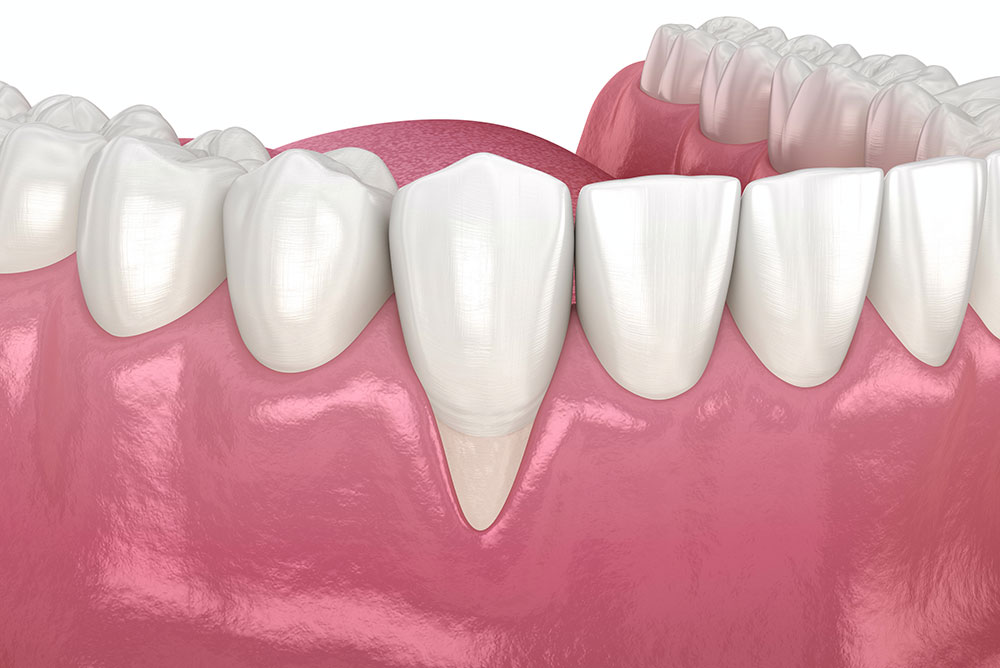Gum recession is, unfortunately, a prevalent condition. Although gum recession is common, it shouldn’t be confused with being normal or unpreventable, as, at this time, there is no hereditary link to gum recession. Even so, there are many causes of gum recession, which is why it can be challenging to prevent as we age.
Gum Recession Appearance
Gum recession appears as missing gum tissue from the front or back of your teeth. It is most common on the front side and can be difficult to see on the backside. If you have recession, you may notice the gum line drops down slightly more than the surrounding teeth, the appearance of the tooth at the gum is more of a yellow or darker colour, and there may be a notch or indentation in the tooth at the gum line. Recession is measured in millimetre increments, so it can be challenging to detect in its initial stages when it measures 1mm or less.
Gum Recession Symptoms
The most common symptom of gum recession is tooth sensitivity. This is due to the gum no longer covering the delicate surface of the root, which is softer and more porous than the crown of the tooth. Alternatively, you may also not experience any sensitivity associated with gum recession.
What Causes Gum Recession?
As stated above, there are many known causes of gum recession. Most common is brushing too aggressively or using a toothbrush with hard bristles. Gums are soft and vulnerable tissue and are at risk of wearing away with repeated abrasion. In addition to toothbrush abrasion, some other common causes of recession are:
- Trauma, such as from nail-biting, injury or oral piercings
- Clenching or grinding
- Faulty or old restorative work, such as the margins of crowns
- Dental braces that move teeth too quickly or from the bands around molars
- Gum disease
Preventing Gum Recession
To prevent gum recession, you have to pinpoint and eliminate the cause. The best ways to prevent gum recession are:
- Using a soft-bristled manual toothbrush, or an electric toothbrush
- Using a gentle brushing technique and not pushing too hard with the brush
- Brushing your teeth at least twice a day and flossing at least once a day to prevent gum disease
- Wearing a night guard if you are prone to clenching or grinding your teeth
- Removing any oral piercings, especially if they are metal
- Preventing any oral habits such as nail biting or biting on foreign objects
- Seeing your dentist and dental hygienist routinely for check-ups and cleanings
If you have any questions about gum recession or ways to prevent it, call or email us today to book an appointment and dental cleaning.

